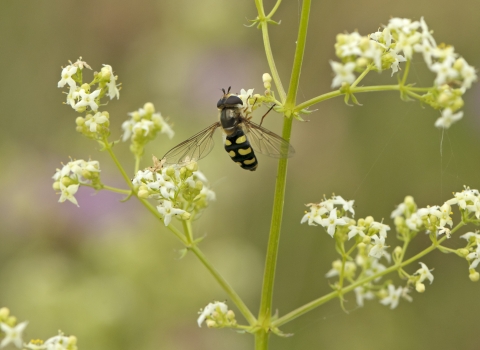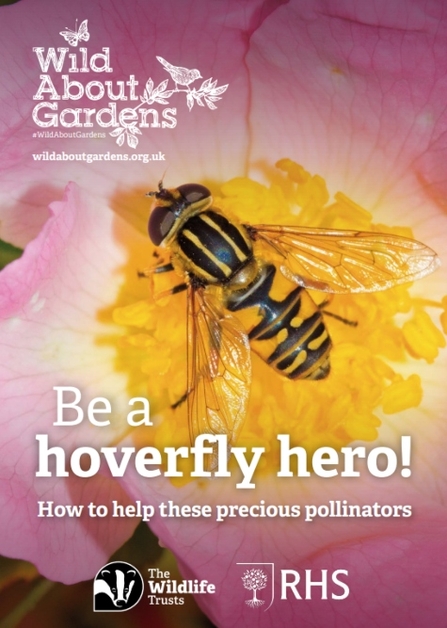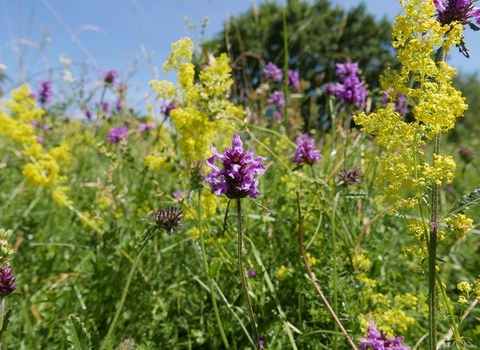The Wildlife Trusts and the RHS set up Wild About Gardens to celebrate wildlife gardening and to encourage people to use their gardens to take action to help support nature. Many of our common garden visitors – including hedgehogs, house sparrows, starlings and beetles – are increasingly under threat.
But together we can make a difference!
Find out how you can get involved and be a hoverfly hero on the Wild About Gardens website.
Let's invite wildlife back
Wild About Gardens celebrates wildlife gardening and aims to encourage people to use their gardens to take action to help support nature.
This year we’re calling on gardeners across the country to help save hoverflies. This fly family is the second most significant pollinator after bees – some species of hoverfly are known to visit more flowers than bees. Find out more about the benefits by downloading our Be a Hoverfly Hero booklet below.
Our guide to being a hoverfly hero
Actions you can take
- Pollinator plant boxes: Ideal for small-space gardens or balconies, these can be jam-packed with flowering plants to suit the season, representing a giant buffet for visiting hoverflies.
- Hoverfly lagoons: These are pools of shallow water where fallen leaves create a perfect breeding ground for many of the hoverfly species which have aquatic larvae.
- Larvae nurseries: Log piles and even shrubs can make perfect homes for hoverfly larvae.
Wildlife gardening
Private gardens make up 20% of our cities. A garden or yard is a valuable home for wildlife by night and day, and is also a vital refuge for many kinds of wildlife.
That's why they're so important, providing space for wildlife and forming links between larger green spaces to make wildlife corridors.



